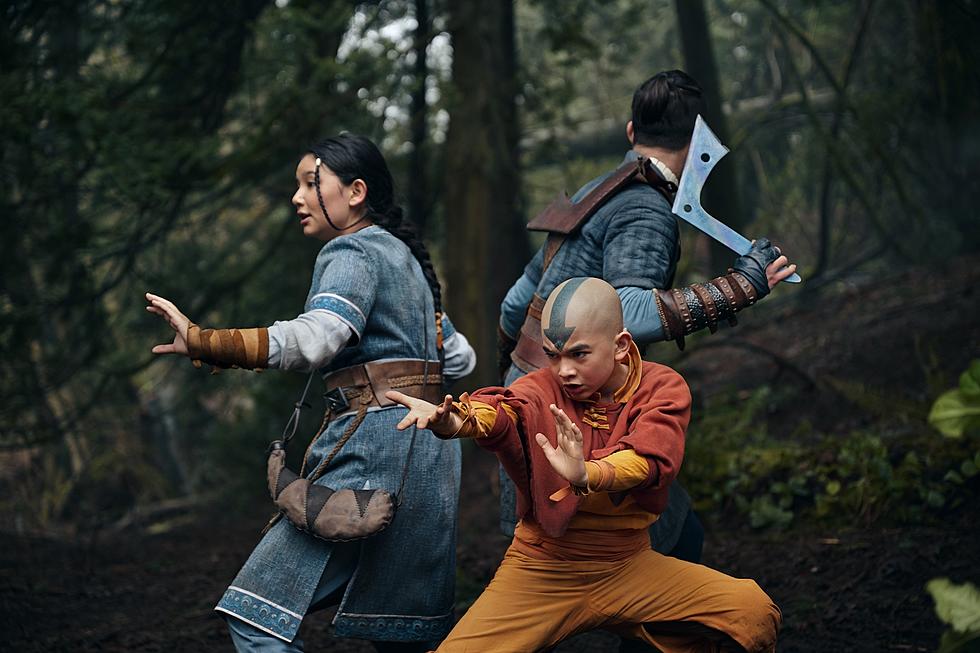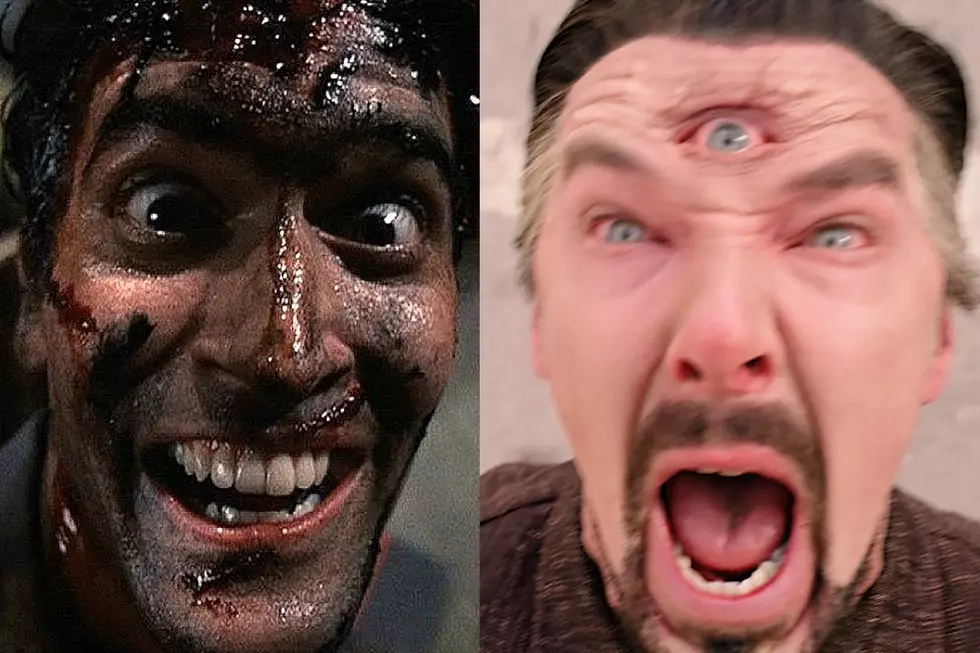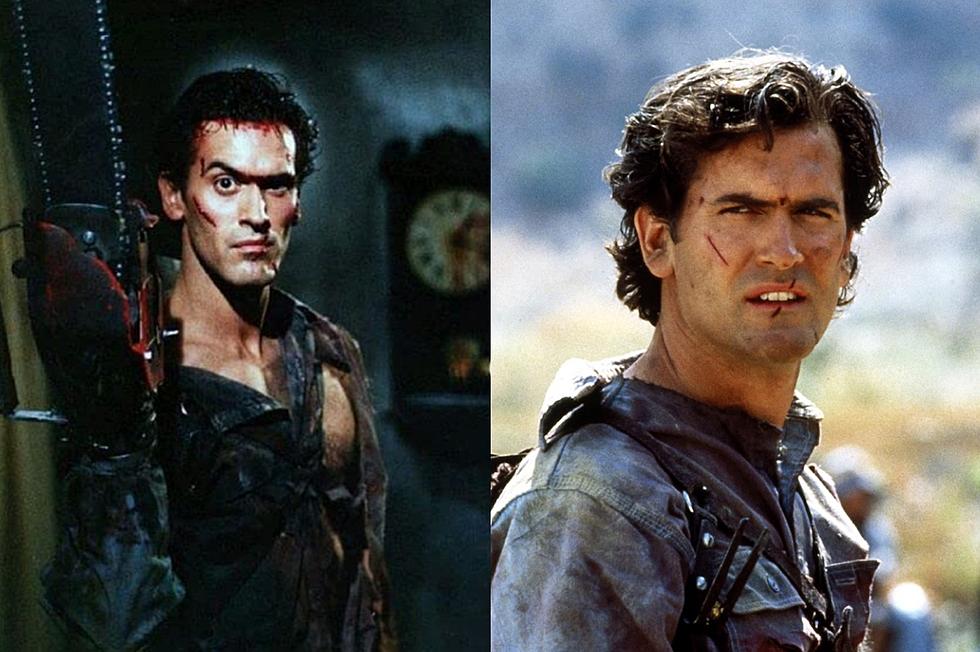
Reel Women: On Inappropriate Reactions from the Audience and Where Responsibility Lies
When are we to be held accountable for the way we react to what's on screen, and how much of our reaction is to be blamed on the director's failure to communicate clearly? For this we look to the new 'Evil Dead,' 'Tyler Perry's Temptation,' 'The Host' and 'Spring Breakers' -- four very different movies, but all with something in common.
I don't like to write in first person for this column (or any piece, really), unless I'm trying to convey a particular point about where/how I viewed a film. But I'm breaking the wall here because I've had some very strange experiences in movie theaters recently.
At the SXSW screening of 'Evil Dead,' audience members erupted in rapturous applause and cheered zealously at every instance of violence, including the horrific "tree rape" sequence, in which Jane Levy's protagonist is held down by tree branches and raped by a malevolent spirit. During the same festival's screening of 'Spring Breakers,' a shot of a clothed female crotch was met with maniacal applause from one particularly immature male in the audience. At the screening of 'The Host,' myself and a couple of colleagues (and a few others in the sparse late-night crowd) laughed when Saoirse Ronan was slapped across the face not once, but twice by her male co-stars. And that same evening, we took in a showing of 'Tyler Perry's Temptation,' during which a male in the back of the theater shouted "Stupid bitch!" at the leading lady on screen. Are these responses to be blamed on our own issues as viewers, or a failure on the part of the director to convey tone and meaning clearly and effectively?
'Evil Dead' is crafted with every intention of being an intense experience, but the primary issue with the film is that it is a remake, which comes with its own baggage: the audience that this film is primarily geared toward is a horror/gore/violence-loving one with much affection for the classic trilogy from which this film borrows its name and several other elements. That audience goes into a remake with a checklist of greatest hits -- the chainsaw, the shotgun, the Oldsmobile and the cabin in the woods -- and all of these boxes must be checked off in order for the audience to be satisfied. There are a combination of factors that led to the film's response at SXSW, including said checklist mentality. Also to be considered: the SXSW genre audience is the kind of crowd that wants blood and gore and viscera, and they'll settle for nothing short of excess. They're also the kind of crowd that's insistent on obnoxiously letting their peers know just how enamored they are with the violence on display by clapping, cheering and laughing through a film that, at most screenings outside of a festival atmosphere, would play with the intensity and seriousness for which it aims.
WATCH: 'Evil Dead' Green-Band Trailer
Director Fede Alvarez tries to walk the line between giving us his horrific vision and delivering a good remake, but the inherent issue with remakes is the audience. There has to be fan service in the form of references and outright pandering, and those elements detract from the intended tone by eliciting joy rather than horror. Sam Raimi's original 'Evil Dead' was a scary movie, but his sequel was a more humorous, splatstick affair and is often regarded as the better of the two for having a bigger budget and a sillier tone -- a tone that continued into 'Army of Darkness.' When people think about 'Evil Dead,' they're thinking about the second and third films, and not the first, so they're going into a movie where the expectation is that this is going to be a fun, over-the-top film, filled with copious amounts of absurd gore. And it is, but Alvarez tried to make a film that was horrific and filled with intense violence that pushes the boundaries of what we're comfortable with as an audience, and he doesn't consistently nail that tone.
But what to make of an audience that cheers on a rape scene? Do we blame Alvarez for trying to give us a horror remake that's both referential and horrific -- for trying to make us smile and recoil in terror at the same time? Or do we look at ourselves and ask a few simple questions, like: is "tree rape" simply a reference, and why do we want a rape scene in a film? The chief issue with the tree rape scene is that it is referential, and will be largely interpreted as such by the audience. Like cheering for the chainsaw and the shotgun, people watch a scene that seeks to replicate an iconic moment from a beloved film, and they cheer with primitive thoughtlessness. It's a damned if you do, damned if you don't situation because if Alvarez had shied away from the inclusion of the scene, fans would cry foul at him for being a coward (because there's something cowardly about not including a rape scene in a horror movie?), but by including it, he satisfies fans who demand their horror films have guts both literally and figuratively. (Side note: I'd love to hear the reaction to that scene from someone who hasn't seen the original films.) But tree rape is also problematic because in Alvarez's version of 'Evil Dead' it plays as just another reference -- but it's not just a reference. It's a scene in a film that has context, and it's replicating a scene from another film that also has context. The audience applauds the reference and ignores the context.
There are many ways for someone to become possessed by a demon, and while the tree rape scene is inarguably iconic, it's not imperative to a retelling of the story by any stretch (unlike 'The Last House on the Left'), and so we go back to that other question: why do we want to see a rape scene? Rape and horror have become almost synonymous, and rape is an easy go-to for directors who want to up the ante. Rape is probably the most horrible thing a human being can endure, but it's become so commonplace in horror that it hardly feels that way anymore. Do we blame Alvarez or do we blame ourselves? I'd say it's equal blame in this round -- an audience of thoughtless consumers and a director who didn't quite succeed what he was attempting through various circumstances, not the least of which is the audience itself.
WATCH: 'Tyler Perry's Temptation' Trailer
As for 'Tyler Perry's Temptation,' I hardly need to explain how horrible a filmmaker Tyler Perry is, but briefly: 'Temptation' is a Christian cautionary tale about a God-fearing woman named Judith who marries her God-fearing husband, but finds herself needing to sow some wild oats when she realizes her marriage is kind of boring. So she sows some oats in the form of a millionaire bad boy who gives her cocaine and alcohol and rapes her on his private jet during a sequence that's supposed to be whatever Tyler Perry thinks "sexy" is. She leaves her husband, contracts HIV, her husband rescues her, and then he leaves her for a woman who doesn't have HIV and has a perfect life, while our lead goes back to church with her God-fearing mother and is alone -- forever.
During a heated scene at a nightclub, Judith tells her husband off and demands a divorce, at which point a male member in the back of the audience at my screening shouted "Stupid bitch!" Why is Judith stupid? (Other than being written as a crudely doodled caricature of a person by Tyler Perry.) Why is she a bitch? Because she won't obey her husband, or because she makes mistakes like other human beings? In the rational version of this movie, Judith is a woman who married too young and had never been with another man, so her desire to experiment and explore would be understandable -- we would empathize, though perhaps not agree with her choices. During that scene she's being a jerk, but the fact that this scene elicits "Stupid bitch" from an audience member is hardly surprising given the movie's hapless director.
Perry makes movies that punish women for being human beings. In this instance, our lead character gets HIV, and that's after she gets beaten by her bad boyfriend -- the same bad boyfriend who rapes her on his private jet, and you can tell it's rape because she says "no" a bunch of times, and then he has sex with her anyway, but Tyler Perry doesn't think it's rape because afterwards, Judith still wants to date this guy. Perry is clearly to blame here for the completely wrong-headed tone, approach, and message of his film, but the audience is also equally culpable for their reaction because clearly they are buying into what Perry's selling.
WATCH: 'Spring Breakers' Trailer
And when your filmmaker is selling you sexed-up teenage girls, how do you respond? I've already written about Harmony Korine's 'Spring Breakers,' in which a quartet of college ladies go wild and rob a restaurant to fund their Spring Break adventure. It's a neon-colored hyper-ballad about female agency and where that agency becomes fantasy (and it's also a fever dream and a video game and a bizarre rap video all rolled into one), and while the girls are scantily clad and forceful about their sexuality, they are also the agents of that sexuality. To view them as sex objects both misses and sort of elaborates the point. We're supposed to question why we're sexualizing them and why we want to see them sexualized and what that desire means in our society -- specifically, what it means about us, and what it means for young women. An audience member manically applauding a shot of one of the girls' crotch areas while she's harmlessly goofing off with her friends in a dorm hallway? That's on the ignorant audience member, and I'd like to thank that guy for helping me understand that particular thematic aspect of the film.
WATCH: 'The Host' Trailer
And finally, we come to 'The Host,' the latest Stephenie Meyer movie that I viewed as part of a double feature with 'Tyler Perry's Temptation' -- two films that seemingly have nothing in common, but both feature their female leads getting slapped around by men, and both films are directed by men (though 'The Host' was written by Stephenie Meyer). Why did I and my friends laugh when Saoirse Ronan was getting slapped across the face? The answer is pretty easy: disbelief. We weren't laughing because a woman was the victim of a violent outburst; we were laughing because it seemed absurd that grown men would be slapping a teenage girl because they thought she was an evil alien. Women getting the crap kicked out of them in film is nothing new -- we empathize more with female characters who are enduring pain and violence because we've been conditioned to view them as weaker. The same reason that they are more easy to identify with is the same reason why we eschew unsympathetic female leads. And yet hitting a woman has become so common in movies that director Andrew Niccol felt the need to include it in this movie, where it feels tonally wrong because the film as a whole feels tonally wrong. There's so much agonizing, unintentional hilarity in the film, and a jarring scene in which Saoirse Ronan is slapped in the face by two different guys serves as a sort of thesis statement moment for what's wrong with the movie.
With the exception of Tyler Perry, you can hardly look at a director's final product and view it as representative of their own personal opinions and beliefs. Where responsibility lies for a director is with their ability to convey a narrative creatively and deliver a consistent tone for that narrative. Whatever is on the page hardly matters because it's up to the director to translate those words to the screen, and it's up to us to digest what we have seen. When there's a tonal disconnect, in the case of 'Evil Dead' or 'The Host,' the responsibility lies largely with the director for being unable to communicate with us exactly what he or she intended. But we're also responsible for our own primitive reactions, and though those reactions are thoughtless, it's that very thoughtlessness that's a problem. Cheering a rape scene because it's a reference, clapping at the crotch region of an actress, shouting "Stupid bitch" at the screen -- these are all instant reactions that come from the way we're internalizing what we're seeing, and we have a choice to externalize that reaction, but we also have a choice to consider the context of what we're seeing both on screen in an objective sense and off-screen, in how we subjectively process it. A response begins with a question, and a considerate response begins with a thoughtful question -- we need to start asking more of ourselves, even when our directors are not.
More From ScreenCrush









